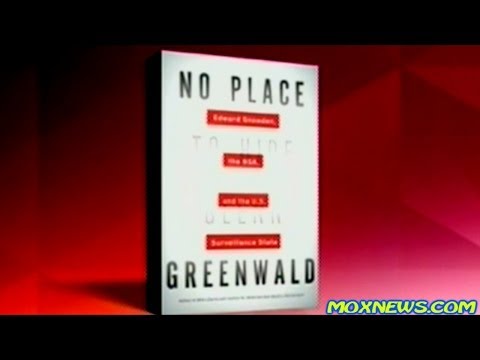######
Howard ZinnHoward Zinn grew up in a working-class family in Brooklyn where he became a shipyard laborer and later, in World War Two, an Air Force bombardier. After the war, he attended Columbia University under the GI Bill and earned his Ph.D. in history. He has taught at Spelman College in Atlanta and later at Boston University. He has also been a history fellow at Harvard University and a visiting professor at the University of Paris and the University of Bolgna. Professor Zinn has won numerous awards and honors including The Thomas Merton Award, The Eugene V. Debs Award, The Upton Sinclair Award and The Lannan Literary Award. In a career that has spanned over forty years, Howard Zinn, as a professor, radical historian, progressive political theorist, social activist, playwright and author, has brought a fresh, thoughtful, humane and common-sensical approach to the study and teaching of history. Among his twenty books and plays are La Guardia in Congress, Disobedience and Democracy, The Politics of History, The Pentagon Papers: Critical Essays, Declarations of Independence: Cross Examining American Ideology, You Can’t Be Neutral On A Moving Train (his autobiography), The Zinn Reader, Marx in Soho and, of course, the seminal, highly celebrated A People’s History of the United States: 1492 to the Present. Howard passed away in January 2010
As you should note, this conversation with Howard Zinn ,which took place in 2000, was my second with him. I subsequently had three more chats with him almost up until the time of his death. You can find invaluable information about Howard Zinn and his vast and significant legacy at The Zinn Project here.
#####
Robert Birnbaum: After years of teaching at Spelman College in Atlanta, you came to Boston University?
Howard Zinn: Hmmm…
RB: That’s a yes?
HZ: It’s a yes. [laughs] I had a year in between. [1960-61]
RB: A significant year?
HZ: Significant because I was fired from Spelman College. [laughs] And to make up for the fact that they were firing a person with tenure, who was chair of the department and who was a full professor, they gave me a check for a year’s salary. $7000. Which was the largest amount of money I had ever held in my hand. We thought, “What will we do, I have a year and seven thousand dollars. We’ll go to Boston.” We had spent a year, I had been a fellow at Harvard for a year. We loved Boston. So we decided to come here. And during that year I wrote two books on the South: My book on SNCC (Student Non Violent Coordinating Committee) and in that year I kept going back and forth to the South. The other book was called The Southern Mystique. During that year, Boston University offered me this job at the political science department, although I was a historian — but I never paid much attention to what is called “discipline” in the academic world — so it was a good year. We lived on Newbury Street, by the way, right above the Winston Flower shop.
RB: Back then, did people talk about Boston as the ‘Athens of America’?
HZ: [chuckles] Bostonians did. Boston was considered an intellectual hub — Harvard, MIT…they didn’t talk about Boston University or Northeastern or any other place. In the year that I spent here in Boston, it certainly was that for me. There I was at Harvard, and I could have lunch with Stuart Hughes and be impressed by the way he talked French to the waiters. [both laugh] He took me to Henri Quaitre. It was on Winthrop Street. The waiters all spoke French — at least when they got someone like Stuart Hughes speaking French with them. I was, you might say — a hick up from the South — he wanted to talk to me about the civil rights movement — so he bought me lunch. We loved Boston. We grow up in New York and in Atlanta we felt landlocked. In Boston we found a city with a river flowing through it. We almost thought it was Paris and the Seine…and it’s close to the sea and close to New Hampshire…we loved the city.
RB: You have said that one of the books you greatly admire is Upton Sinclair’s novel Boston?
HZ: It was novel based on the Sacco and Vanzetti case. It’s not even fair to say it was based on it because that suggests a novel loosely based on fact. Actually, the novel Boston, though it has a couple of fictional characters, is really a journalistic account of the Sacco-Vanzetti case. And maybe one of the best non-fiction accounts — even though it is a work of fiction — of the case that I have seen. I grew up loving Upton Sinclair, grew up influenced so much by his work. Not just The Jungle, but The Brass Check, Oil, King Coal. He wrote so many. Then a publisher in Boston decided to bring out Boston, which had been long out of print. And asked me to write an introduction to it, which I did. The Sacco and Vanzetti Case remains important in my thinking and it’s one of those things that happen in history which you can’t forget. I try to imagine how many people in America have been affected by that case, by the powerful emotions generated by that case. There are certain moments in American history that had that effect on people. Sacco-Vanzetti was one. The Rosenberg case was another. The Haymarket Affair for an earlier generation…Emma Goldman, when she was a kid, was influenced by the Haymarket Affair.
RB: How much does the history of Boston — Sacco & Vanzetti, Salem Witch Trial, Boston Police Riot, Blues Laws — affect people today? How aware are they?
HZ: Not very much. It’s always amazing to me how people live in a city and don’t know the history of that city. I’ve been to Lawrence, Massachusetts, and I would bring up the textile strike of 1912 and nobody would know about it. In Boston, aside from the Freedom Trail…
RB: Soon to be the Hood Freedom Trail or the Raytheon Freedom Trail…
HZ: The Revolutionary War and Paul Revere and the cemeteries, yeah. But other than that, things like the Boston Police Strike of 1919, people don’t know about that.
RB: Were there book burnings or just book banning here in Boston?
HZ: I don’t know if they actually burned books, but they certainly banned a lot of books. Sometimes it’s a short step from banning to burning. Boston still has that reputation. Outside of Boston, what Boston is known for is being ‘blue’, being sensitive to anything connected with the church, especially Catholicism. I don’t think it deserves that reputation anymore.
RB: What reputation does it deserve? Is it a distinct place or a generic modern American metropolis?
HZ: For people living in it, yeah. Boston is distinguishable from other cities, which begin to resemble one another very much. It does have special character. I talk to people who come here from other places, and they feel that Boston has a special character. They connect it with history. They do connect it with age. Of course, to a European, it’s not very old. But still, for Americans, they connect it with the American Revolution.
RB: Does it seem like tourists are more conscious of Boston’s place in history than its residents?
HZ: I think that’s almost always true, that tourists read the tourist guide. And they learn things about a city and the people in the city are not paying any attention to that. I think that’s generally true…
RB: But tourists won’t find out about Sacco and Vanzetti, The Police Strike, etc., in tour literature.
HZ: There is no radical walking tour in Boston like there is in New York. There is a guy in New York who takes people to where Emma Goldman lived on 13th Street and this Union Square where…
RB: What would that feature?
HZ: They could say, “This is the spot on the Charles River where a copy of the Pentagon Papers went from hand to hand and ended up with the Boston Globe.” Think of all those things that happened during the Vietnam War in Boston. One thing Boston is known for, in the 60’s, Boston became known as a hub of anti-war resistance. The meetings on the Common, I don’t know if anyone has written a history of the Boston Common as protest place. Or Fanueil Hall. The Boston Common was a mirror of the growth of the anti-war movement. I spoke at the first anti-war meeting on the Common in the Spring of 1965. There were a hundred people there. Then I spoke there again in the 1969 Mobilization and there were 100,000 people there. So, many things have happened there. Yeah, Boston is a special place.
RB: Speaking of anti-war protest, Barry Crimmins [1]— as is his wont — is outraged at Bush’s court-appointed presidency. George Bush seems to be bringing back the good old days: a new cold war, an economic downturn and a return to Eisenhower-era morality. What do you think?
HZ: It’s really interesting. Here the guy wins the presidency by the most nefarious of methods and without a popular mandate. Losing a popular vote by a larger margin than Hayes lost the popular vote in 1876, but then moves ahead with aplomb, with total arrogance as if the country is his. My feeling is that we are living in an occupied country. Really, that we’ve been taken over, a junta has taken power and now the problem for the American people is to do what people do in an occupied country…
RB: Hunker down? Create a black market? Some resist, many collaborate…In the Spy Plane Incident, commentators were heartened to see Bush “rise above the politics” and call in ‘experts’ like his father and Henry Kissinger. Recently Christopher Hitchens wrote an essay in Harper’s about Henry Kissinger’s culpability as a war criminal[2]. Is Henry Kissinger a war criminal?
HZ: It’s certainly true that he is a war criminal. In the sense that he was part of the apparatus and an a intellectual leader and adviser of that bureaucracy which carried on the Vietnam War, which carried on the secret illegal bombing of Cambodia, which helped engineer the coup in Chile in 1973. And so Kissinger is responsible for much of the atrocious conduct of American foreign policy. The idea that he received the Nobel Peace Prize made a number people dismiss that award after that. Christopher Hitchens’ piece was well deserved and it’s good to call attention. I saw a satiric piece in the Washington Post about the Hitchens essay by a former student of mine, Peter Carlson. He asked, “Why are they getting excited about Kissinger as a war criminal? He’s a wonderful dinner guest.”
RB: The response to the charges against Kissinger are curious. Some say, “Well, other administrations did comparable acts.” As if that relieved Kissinger of any blame. But whatever the truth or falsity of the charges isn’t there a prima facie case and therefore a trial would be in order to determine the ‘truth.’
HZ: Sure. Let’s have a trial. The advantage of a trial is it brings everything out into the open. It’s an educational opportunity. The South African trials didn’t result in people going to prison. I’m not interested in putting Henry Kissinger in prison, you see. I mean if we are going to put people in prison, we’d have to put the whole American establishment in prison for the things that have been done to people all over the world. But certainly for calling attention to what’s been done, it would be a very useful thing to do. I didn’t want to see Pinochet — for all his barbaric deeds — put in prison. But to call attention to what he did. Yes, a very useful thing.
RB: You feel the same way about recently discovered French collaborators from World War II?
HZ: Yeah. The whole concept of punishment is foreign to me. And revenge. To me the only useful thing about bringing these people before the bar of justice is as an education. In a way, by doing that, we are going back to a very primitive approach to punishment…some of the Indian tribes and other indigenous peoples where their idea of punishment is to shame people before the tribe. They’d exile them or send them out in the forest with a glass of water.[laughs] But they’d shame them and that’s a useful thing to do…more serious than putting them behind bars. So, Kissinger deserves to be shamed and the people who have had him as dinner guest deserve to be shamed. Although we should stop short of putting on trial anyone who made a dinner for him.
RB: Besides writing plays, what are some of the other things you are doing?
HZ: I’m doing an awful lot of speaking, going around the country speaking. That’s why I’m not missing my teaching.
RB: Does it seem like people are paying more attention to you now than when you were actively teaching and publishing?
HZ: No doubt. No question. Almost entirely because of A People’s History of the United States. The reasons I get these invitations to talk is because of A People’s History, which has now sold 800,000 copies. And it sells more each year than the year before, which is a very rare thing in publishing.
RB: A popular groundswell…
HZ: Yeah…and so I get all these invitations to speak because my book is being used by high school and college classes, community groups, book clubs and discussion groups in communities here and there. So as a result, I’m very busy. I have to say no to an awful lot of things now, that I would have been glad to do years ago when I was hungry for invitations.
RB: What does it suggest to you that your book, originally published in 1980, grows more and more popular?
HZ: What it means, I think, is that there is a very large number of people who are receptive, even hungry for new ways at looking at American History and new ways at looking at American society. I think we are deceived by the attention that media gives to our political leaders. By that I mean that, because all we see on television are congressional leaders and the President and the members of the cabinet and so on, we begin to think that they do represent the thinking of the country. If you consider that half of the voting population did not vote and that of that half only half voted for whoever is president — and this is true in almost every election, not just in this recent election — there is a huge number of people who did not vote for the existing president, and many who did vote voted without enthusiasm only because they didn’t have much of a choice.
RB: You no doubt have heard Michael Moore’s characterization of the Bush-Gore election as one of “The Evil of Two Lessers”…
HZ: [Laughs] Leave it to Michael Moore. I love the last line in his last movie, “One evil empire down, one to go.” To me this means…let me put it this way, I think there is a very large number of people in this country — this even borne out by public opinion polls which over the last ten or fifteen years have shown that on issues — the public is ahead of both major parties. That the public has been consistently willing to take more money out of the military budget and spend it for education and housing and human needs. I believe there are huge numbers of people in this country who would be willing to have radical changes in our economic and social system in order to make it a more egalitarian society and do away with homelessness and hunger and clean up the environment. But these people have no voice. They have no way of expressing themselves. Elections give them no way of expressing themselves. I go around the country and I speak and not to audiences of radicals.
RB: Given your busy schedule, one can assume that your audience is much larger than the core progressive community…there aren’t that many radicals.
HZ: [laughs] No, there aren’t. I go to speak to California Polytechnic Institute in San Luis Obispo. How many radicals can there be there? How many liberals can there be there? Fifteen hundred students show up. And they listen to me and I’m talking about the economic system and the profit system as being wrong and inhuman and I talk about the necessity to abolish war as a means of solving problems and to not have any more military interventions and to seriously cut down the military budget. I talk about these things and they…agree. I found this, I talk to audiences in Oklahoma and Texas and here and there and mostly to audiences of people who don’t really know my work. I certainly don’t expect them to be sympathetic to my ideas. When I express my ideas — and they are radical ideas — except that I don’t start off by saying, “I’m now going to tell you radical ideas.” Or, “I’m now going to expound ideas of socialism or attack capitalism.” Or, “This is going to be a hate imperialism talk.” None of that. People respond to commonsense ideas about foreign policy and domestic policy. It encourages me about the potential in this country, despite who is running it.
RB: Joe Conason in a recent New York Observer column characterized Trent Lott as running the Senate like it was a jukebox. To coin a phrase, “Where’s the outrage?” Does this get people thinking?
HZ: I think people are thinking, but they have no way of expressing their thoughts, no ongoing movement to connect it with, no movement close to them that they can see. But if a movement got started in this country — and after all, that’s how movements grow, from small to large. People in the 1950’s didn’t talk about racial segregation in the South as something to do anything about. When the first steps were taken, the first pictures appeared on television of people resisting and people thought about it — it was an obvious wrong. And there are so many obvious wrongs going on today.
RB: Can we talk about the irony of the Republicans accusing their opponents of inciting class warfare?
HZ: [laughs heartily] It’s very interesting to me. When the Democrats are attacked for that they shrink back. They don’t say what obviously should be said, “Yes, there is class warfare. There has always been class warfare in this country.” The reason the Democrats shrink back is because the Democrats and the Republicans are on the same side of the class war. They have slightly different takes. The Democrats are part of the upper class that is more willing to make concessions to the lower class in order to maintain their power.
RB: Blacks and minorities can get into Democratic country clubs.
HZ: Yes. Exactly. Republicans have fund-raisers where you need $400,000. Democrats only require $300,000. This country began on the basis of class conflict. The Constitution was set up to control people like Shay’s rebels of Western Massachusetts.
RB: Wouldn’t it be easier to “sell” the notion of class conflict if it wasn’t an a priori element of radical analysis?
HZ: Americans are brought up to believe that we are one country and we are united and we have language to justify that approach. We have phrases like ‘national security,’ ‘national interest.’ ‘National defense.’ The implication being that anything that’s done for the ‘national interest’ is done for everybody. The ‘national defense’ defends everybody. ‘National security’ is for everybody, it’s not for somebody’s securities. And so there’s been a hesitation — really a fear of allowing the notion of class to enter into the popular consciousness. And yet when they ask people — this is shown again and again in public opinion polls — “Do you believe a small group of powerful people run the country?” Eighty-five per cent said, “Yes.” People know this.
RB: If you polled the small group of people who do run the country, what do you think they would say?
HZ: [laughs] It would depend if it was off the record or not. Maybe some would admit it. Some would be afraid to admit it.
RB: I would think no one would be afraid to admit to such glaringly obvious realities. What would the reaction be? Are people going to resurrect the Wobblies (Industrial Workers of The World)?
HZ: You mean they really have no need to be afraid. Although they have no need to be afraid, they are still very fearful that something small might become something big, you see. That’s why a picket line with three people will suddenly attract twelve policemen. That’s why Nixon went hysterical when one person was picketing the White House. That’s the whole idea of repression. That’s the idea of putting a few people in jail in order to scare the rest. Even though there is a kind of general recognition that this true, they would rather not emphasize it by talking about ‘class.’
RB: That does point big arrows at the concept of Hope? The power of a small idea to mushroom into something grand.
HZ: Yeah. You might say that the people who run the country have more of a sense of history than the masses of people. And because they have that sense, they keep that history of struggle and victory over the powerful out of the history books.
RB: I take it you are heartened and hopeful about the forthcoming film version of A People’s History?[3]
HZ: Well, I’m half-hopeful [both laugh]. Anybody that deals with Hollywood, anybody who deals with the film industry has to be very cautious. I’m not at all sure that the book will be turned into film although HBO has signed contracts with three writers. Each of whom will write a two-hour script. Howard Fast to do the revolutionary War, John Sayles [4] to do something on the Lowell Mill girls, and a Scottish writer, Paul Laverty, to do something on Columbus and Las Casas. So HBO has agreed to finance the scripts, and after the scripts are done they will decide whether they will make a film. That’s standard procedure in Hollywood. They are very often are willing to spend hundreds of thousands of dollars for the writing of scripts and then not make a film because the film will cost 5 or 10 million dollars. So, that’s why I say it’s still up in the air. Yes, I’m half-hopeful, especially because we have good writers.
RB: I’ve been collecting stories about how long some projects take. Ed Harris’ Pollack took 8 years…
HZ: Oh yeah. The bureaucracy in both film and television is amazing. The films take years to do and in the meantime the bureaucracy changes hands. All sorts of things happen…
RB: You are listed as an executive producer. Is that a titular position or are you actively involved?
HZ: No, it’s real. There are four executive producers. They call us the Gang of Four. Matt Damon, Ben Affleck, me and Chris Moore. Yeah, we will supervise and, of course, HBO will have final say over things. We have been involved in choosing the writers, going over the scripts and be involved at every stage of the process. The idea of us being executive producers is really to stand guard over the sanctity of the point of view of People’s History so that Howard Fast’s story of the mutinies in the Revolutionary Army doesn’t become Mel Gibson’s The Patriot.
RB: You are still writing plays?
HZ: Well, yeah. My most recent play, Marx in Soho, has been done all over the country, San Francisco, Chicago, here. It’s still being done. More recently, I wrote something, a one-person play. And I don’t know if you want to call it a play, Boston Playwright’s Theater insists on calling them Ten-minute plays. I’ve never done it before, and this coming Sunday there will be a whole bunch of them including mine being shown at the Boston Playwright’s Theater.
RB: What’s the subject or story?
HZ: Well unlike Marx in Soho, which is a fun play about Karl Marx as well as having serious things to say, this a serious play about a hospital situation, a family situation involving a dying mother…
RB: In ten minutes? When asked to identify yourself what do you say?
HZ: I call myself a writer. I like it. It’s a more lofty designation than professor. Do you know what I mean?
RB: In Europe anyway. How is it here when you tell people you are a writer?
HZ: I would rather think of myself as a writer than as a professor. I refer to think of myself as a historian, as a writer. I am also working on a screenplay with poet and playwright Naomi Wallace.
RB: Who is doing good history today?
HZ: Well, there are bunch of relatively young historians who are doing a new kind of history. Eric Foner wrote a wonderful book on the Reconstruction period replacing some very bad books on the Reconstruction. A lot of really good Black history is being written…Vincent Harding, who was involved in the Civil Rights movement and is a historian, he’s been writing good stuff. There is a new book out on the American Revolution which is excellent. It’s called The People’s History of the American Revolution by Ray Raphael. And there’s a wonderful, funny novel written about the American Revolution by Paul Lussier [5] called Last Refuge of Scoundrels (from Samuel Johnson’s “Patriotism is the last refuge of scoundrels.”) It’ll be interesting to see whether the way he treats the revolution gets him into trouble. Trouble in the sense of will they make a film out of this. It’s a very funny book.
RB: It’s a Warner Book.
HZ: And Warner has an option. Will they do it? He told me that some people who were going to interview him on radio programs canceled because thought it would be troublesome. To answer your question, yes there is some very good history being done. And Ray Raphael, a writer on the West Coast, has written on other subjects and interestingly enough is not a professional expert but has written a better book than any I’ve seen on the American Revolution. You don’t have to be an academically trained Ph.D historian to write a very good book on history.
RB: That seems almost to go without saying. There seem to be a strong self-interest in the mandarin class to protect the myth of intellectual expertise…
HZ: Of course, of course. There’s always a little resentment at someone who writes a history book that everybody reads.
RB: Some people must be very angry at you.
HZ: Some of them are.
RB: You are about as non-dogmatic and ideological a thinker as I’m familiar with, but are there any Zinnists? Any disciples?
HZ: Zinnism? There are just people who read my books, that’s all. A lot of people show up at my talks. Big crowds. Yeah, people who read my books…
RB: Lest you think my question totally absurd, it has been my experience that when I post my conversations with writers I invariably am contacted by their official website — the keepers of the flame…
HZ: There is a website that somebody did for me which I didn’t know about until somebody told me about it.
RB: Do you think about your legacy?
HZ: We all think about our mortality.
RB: Yes, they go hand in hand…
HZ: Yes that’s right. Legacy, mortality…I suppose in preparing myself psychologically for the end I ask, “Do I feel okay?” “Yeah.” There are huge numbers of letters that have been written to me by people who say, “Your book changed my life.” They say extravagant things. Things I would never say. So I feel I made a difference in the lives and thinking of a lot of people. So that’s good.
RB: You feel like you’ve done good work?
HZ: [Chuckles] Yeah, sure.
RB: You laugh as if there is some thing qualifying that?
HZ: Well, I could have done more. Everybody probably says they could have done more. But yeah I think I’ve done…I feel good about the things I’ve done. I feel good that I’ve been able to do that work and have a family, children and grandchildren and to wrestle with the tension between the two. Which is always difficult.
RB: Do you think maybe the real problem facing advanced societies is the decline in opportunity to do “good work”?
HZ: Well, for instance, the profit motive in publishing has kept out of bookstores lots of wonderful writing and lots of wonderful poetry. Poets have such a hard time getting published.
RB: I was thinking in a broader way. How it is that economic fluctuations might restrain initiative and adventure and experimentation…
HZ: I think that pressure exists on young people who want to be poets, actors and musicians. Both because their parents are looking in on them and wondering how their kids will survive and paying huge tuition for them and also thinking themselves of their own future and decide, “No, I can’t be a poet. I can’t be a musician because I won’t be able to survive.” So yes, it’s a culture so dominated by the need to make money and be successful in the orthodox sense that it cripples creativity…
############
1.) My 2001 conversation with Barry Crimmins
2.) Conversation with Christopher Hitchens and I about Henry Kissinger as a war criminal
3.) The HBO film project for A People’s History transmogrified into the THE PEOPLE SPEAK. which brings to the USA’s rich history of dissent and shows its importance for todays movements. The trailer is here.
4.) My second conversation with John Sayles is here.
5.) My Identitytheory conversation with Paul Lussier is here.
######
Copyright 2001, 2016 by Robert Birnbaum
All photos by Red Diaz/Duende Publishing
![Howard Zinn circa 2000 [photo: Robert Birnbaum copyright 2016]](https://ourmaninboston.files.wordpress.com/2016/01/imgres2.jpg?w=490)


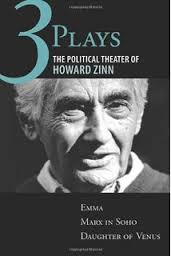

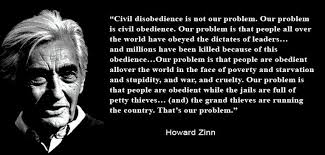



![Pete Dexter circa 2009 [photo:Robert Birnbaum]](https://ourmaninboston.files.wordpress.com/2014/06/pete-dexter.jpg?w=490&h=367)

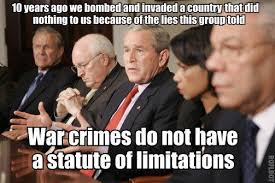



![Bob Shaccochis [photo: Robert Birnbaum]](https://ourmaninboston.files.wordpress.com/2014/06/shachochis-i.jpg?w=490&h=653)
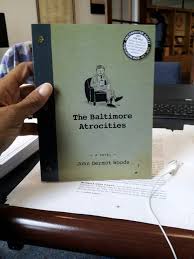
![1/ 3 of San Antonio Spurs[photo borrowed from Hardwood Paroxysm]](https://ourmaninboston.files.wordpress.com/2014/06/tim-duncan-manu-ginobili-tony-parker-kawhi-leonard-nba-playoffs-portland-trail-blazers-san-antonio-spurs.jpg?w=490&h=326)
